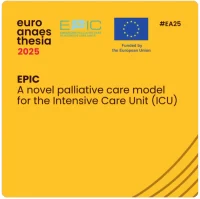Critically ill patients, particularly those who experience delirium or require invasive mechanical ventilation, are at high risk for long-term cognitive impairments. Ventilator-associated brain injury is an emerging area of research, with experts emphasising the need for improved assessment tools and advanced statistical methods to evaluate brain dysfunction in conditions like acute respiratory distress syndrome (ARDS). Cognitive reserve has shown potential in protecting against cognitive decline post-ICU, but its role has not been extensively studied using modern analytic approaches.
A new study investigated the influence of cognitive reserve on long-term cognitive outcomes in COVID-19 ICU survivors, utilising cluster analysis to classify patients based on their cognitive performance one year after discharge.
The study included COVID-19 ICU survivors admitted between March 2020 and January 2021. Patients with prior neurological or severe psychiatric conditions, cognitive impairment, substance abuse, or language barriers were excluded. Clinical and demographic data were collected retrospectively, and delirium during hospitalisation was estimated using medical reports, agitation episodes, or antipsychotic use.
Cognitive reserve was measured post-discharge with the Cognitive Reserve Questionnaire. One year after ICU discharge, trained neuropsychologists administered a comprehensive neuropsychological test battery. Cognitive performance was scored using age- and education-adjusted z-scores across seven cognitive domains.
An unsupervised machine learning clustering algorithm was applied to these cognitive indices to group patients based on their 12-month cognitive profiles, independent of demographic or clinical data. Statistical tests were then used to explore associations between the identified cognitive clusters and clinical/demographic variables.
Out of 150 COVID-19 ICU survivors, 77 patients (median age 60.4 years; 29.9% women; 61% received invasive mechanical ventilation) were analysed. Cluster analysis identified four cognitive profiles (C1–C4).
Patients in cluster C2 showed the most severe cognitive impairments, particularly in processing speed and executive functions, and had the lowest cognitive reserve. Clusters C3 and C4 had the most preserved cognitive function, while C3 patients were notably younger with fewer comorbidities. Although disease severity was higher in C1, no significant differences were found among clusters in terms of sex, ICU stay duration, IMV requirement, or presence of delirium.
These findings show that cognitive reserve positively influences long-term cognitive outcomes in COVID-19 ICU survivors, even among older and more clinically vulnerable patients. Higher cognitive reserve appears to protect against cognitive impairments, particularly those linked to frontal–subcortical dysfunction. These findings reinforce previous research suggesting that greater cognitive reserve is associated with better cognitive and functional recovery after critical illness.
The results highlight the importance of cognitive reserve as a modifiable factor influenced by education, occupational complexity, and social engagement. Future research should further explore its role in various ICU populations. Enhancing cognitive reserve through lifelong learning and cognitive stimulation may offer new avenues for preventing and treating post-ICU cognitive decline.
Source: AJRCCM
Image Credit: iStock










